University students face intense academic pressure, tight deadlines, and an overwhelming amount of information — and AI tools are becoming essential for staying organized and productive. From streamlining essay writing and summarizing dense lectures to discovering credible sources and managing schedules, today’s AI-powered platforms offer real-time support tailored to academic life. The best tools don’t just generate text — they help you think more clearly, study more efficiently, and improve the quality of your work while keeping your own voice intact. Whether you're juggling multiple assignments, preparing for midterms, or building a research-heavy bibliography, AI can automate repetitive tasks and help you focus on learning. With options for every budget — including genuinely powerful free versions — these tools support students across all fields, from humanities to engineering. This guide highlights the top AI tools for university students in 2026, ranked for usability, value, reliability, and real academic impact. If you want to study smarter, reduce stress, and produce higher-quality work with less wasted time, the tools below are some of the best places to start.

Best Paid AI Tools for University Students
| Rank | Tool | Strength | Price | Limits |
|---|---|---|---|---|
| #1 | Perplexity Pro | Source-cited research answers + faster reading | $20/month | Fair-use limits on advanced searches/models |
| #2 | Grammarly Pro | Academic writing polish + tone, clarity, and rewriting | From $12/month (annual) | Gen-AI prompt allowance varies by tier |
| #3 | Otter Pro | Lecture recording, transcription, and smart summaries | $8.33/user/month (annual) | Monthly transcription minute caps |
| #4 | Readwise Reader | Turn readings into searchable highlights + study review | $9.99/month (annual) | Best value on annual billing |
| #5 | Wolfram|Alpha Pro (Student) | Step-by-step math, engineering, and science problem solving | $8.25/month (annual) | Some step-by-step features require Pro Premium |
Perplexity Pro
Perplexity Pro is one of the most practical “student-grade” upgrades you can buy because it’s built around fast, source-cited research. Instead of guessing which links are trustworthy, you can ask a question and get a structured answer with citations you can open, skim, and use to guide deeper reading. This is especially helpful for literature reviews, argumentative essays, lab report background sections, and any assignment where you need credible references quickly. Pro also makes long reading tasks feel lighter by summarizing key points, comparing viewpoints, and helping you generate better search queries when you’re stuck. It won’t replace real academic reading, but it massively reduces the time spent hunting for usable sources and turning them into an outline that actually makes sense.
Grammarly Pro
Grammarly Pro is the fastest way to level up your writing quality across every course, whether you’re submitting weekly discussion posts or a major final report. It goes beyond basic spelling fixes by improving clarity, flow, and tone while helping you avoid awkward phrasing that can hurt grades even when your ideas are strong. For non-native English speakers, it’s especially useful as a “live writing coach” that makes your work sound more natural without changing what you’re trying to say. Grammarly Pro also supports rewriting and polishing paragraphs when deadlines are tight, which is perfect for editing the night before submission. Used responsibly, it’s a high-impact tool for producing cleaner, more professional academic writing with less stress and fewer last-minute mistakes.
Otter Pro
Otter Pro is ideal for students who learn best by reviewing lectures, tutorials, study groups, or office-hour explanations. It records and transcribes audio, then turns long conversations into searchable notes and structured summaries you can revisit later. That’s huge when you’re dealing with fast-paced professors, complex problem-solving steps, or classes where one missed detail can derail an entire homework set. Otter also helps you turn real classroom material into study-ready notes faster than manual typing, and the searchable transcript makes it easy to find the exact moment a concept was explained. If your semester includes heavy lecture content, team meetings, or frequent presentations, Otter Pro is a serious productivity multiplier.
Readwise Reader
Readwise Reader is built for students who spend hours reading PDFs, articles, and online sources — and then lose track of what mattered. It helps you save readings, highlight the important parts, and organize everything into a searchable study library so your research doesn’t disappear into 30 open tabs. The real advantage is how it turns “passive reading” into reusable academic material: highlights become review prompts, key ideas become building blocks for outlines, and everything stays accessible when it’s time to write. It also fits perfectly with long-term studying because your best notes from earlier weeks (or earlier courses) don’t vanish. If you want less chaos and more retention from your readings, Readwise Reader is one of the smartest paid tools you can add to your workflow.
Wolfram|Alpha Pro (Student)
Wolfram|Alpha Pro is a powerful study companion for STEM students because it can break down problems step-by-step and show you how the solution is built, not just what the final answer is. That makes it useful for calculus, physics, chemistry, statistics, and engineering courses where method matters as much as correctness. It’s also great for checking homework, validating intermediate results, and catching small algebra mistakes before they snowball into a wrong final submission. Used the right way, Wolfram helps you learn faster by revealing the “missing steps” that textbooks sometimes skip. If you’re taking technical courses with frequent problem sets, this tool can save hours while improving understanding at the same time.
Best Free AI Tools for University Students
| Rank | Tool | Strength | Limitations |
|---|---|---|---|
| #1 | ChatGPT (Free) | Explains concepts, generates outlines, helps you study | May require verification; features vary by free tier |
| #2 | Perplexity (Free) | Fast web research with citations | Lower limits on advanced search/models |
| #3 | Google NotebookLM | Study from your sources (PDFs/links) with grounded Q&A | Requires a Google account; usage caps apply |
| #4 | SciSpace Chat PDF | Ask questions about papers, slides, and textbooks | Free tier limits on premium features and heavy usage |
| #5 | MyBib | Free citation generator with easy export | Metadata can require manual cleanup |
ChatGPT (Free)
ChatGPT is a flexible study assistant that helps university students with a wide range of academic tasks — from summarizing readings to explaining difficult concepts in plain language. It’s especially useful when you feel stuck: you can ask for examples, analogies, practice questions, or a step-by-step breakdown of a topic you don’t fully understand. Students also use it to generate essay outlines, refine thesis statements, brainstorm project ideas, and create study plans for exams. Like any AI, it can be wrong or overly confident sometimes, so it’s best used as a learning companion rather than a final authority. If you treat it as a smart tutor that helps you think and study faster, it’s one of the highest-value free tools available.
Perplexity (Free)
Perplexity’s free tier is one of the best research helpers for students because it focuses on citation-first answers. Instead of scrolling through endless search results, you get a summarized response plus the sources it used — which is perfect when you’re building a bibliography or trying to verify a claim quickly. It’s great for early-stage research, topic exploration, and comparing viewpoints on debated issues. The free version still delivers serious value, but you’ll hit limits sooner if you rely heavily on advanced search features or premium models. For most students, it’s a strong default tool for “find sources fast, then read deeply” workflows.
Google NotebookLM
NotebookLM is one of the most student-friendly AI tools because it works from your own sources — like PDFs, notes, and links — and helps you understand them more efficiently. You can ask it questions about your lecture materials, request summaries of long documents, turn readings into study guides, and extract key terms for revision. Because it’s grounded in what you provide, it’s often better for studying than general chatbots when you need to stay aligned with course content. It’s especially helpful for exam prep, where you want a clear explanation based on your actual slides or readings rather than generic internet knowledge. If you’re drowning in documents, NotebookLM helps you turn them into structured understanding.
SciSpace Chat PDF
SciSpace Chat PDF is built for students who regularly work with academic PDFs — research papers, lecture notes, textbook chapters, and technical documentation. You upload a document (or use supported sources), then ask questions directly and get answers tied to the document’s content, which makes it easier to understand complex sections and identify what matters most. This is a huge time-saver for STEM courses, where you might be reading dense material full of jargon, equations, or unfamiliar terminology. SciSpace helps you move from “I don’t get this paragraph” to “I understand the concept and can explain it” much faster. For students doing research projects or literature reviews, it’s also a strong way to triage papers quickly before you commit to full reading.
MyBib
MyBib is a simple, fast citation generator that helps students format references correctly without paying for a subscription. It supports common academic styles like APA, MLA, Chicago, Harvard, and more, and it makes it easy to export citations into Word, Google Docs, or BibTeX workflows. For essays, lab reports, and research papers, it’s one of the quickest ways to build a clean bibliography — especially when you’re collecting many sources and don’t want to manually format each one. Like most citation tools, it can occasionally pull imperfect metadata from the web, so it’s smart to double-check author names, publication dates, and journal titles. Overall, it’s a reliable free tool that removes a frustrating part of academic writing.
Rankings
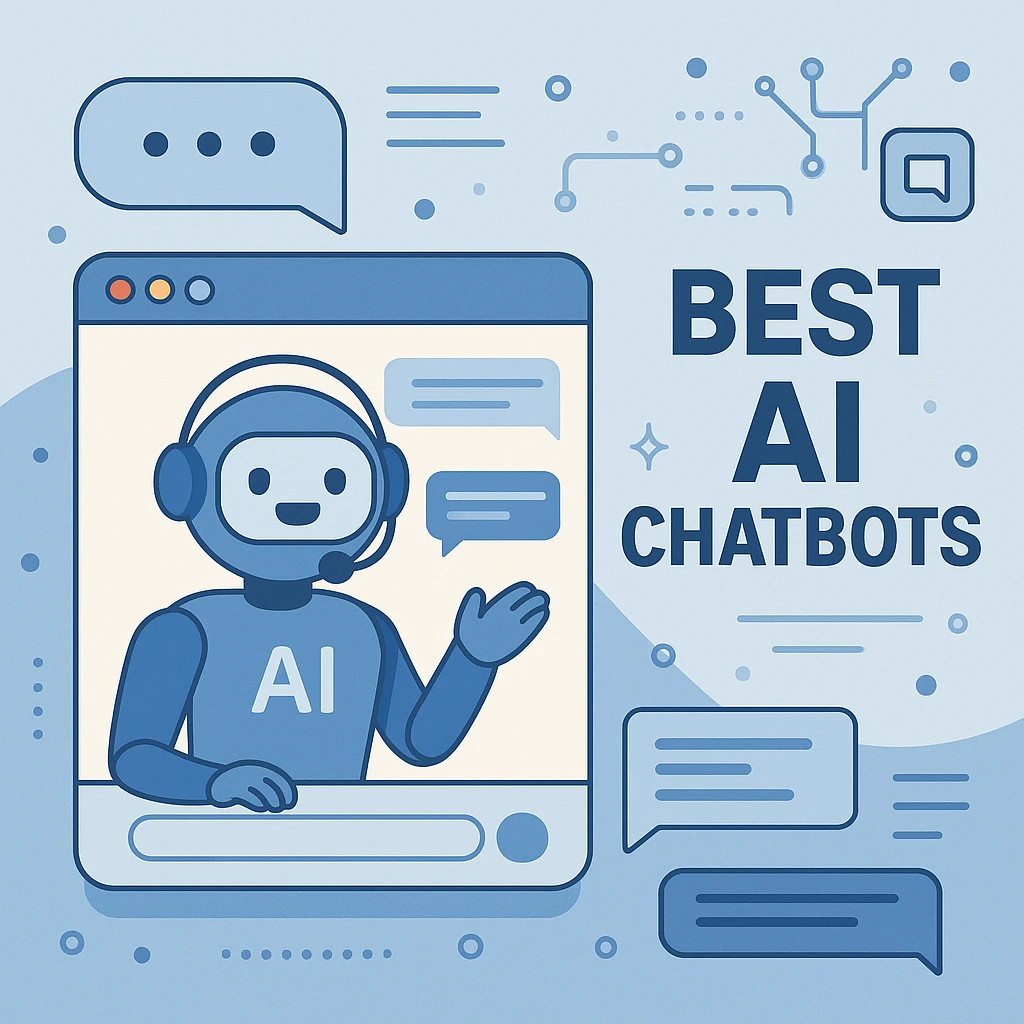
Chatbots
AI chatbots have quickly evolved from simple assistants into powerful, multi-purpose tools used by millions of people every day...

Image Generators
AI image generators are revolutionizing the way creatives, marketers, and developers produce visual content by transforming text prompts into detailed, customized...

Writing Assistants
AI writing assistants have become indispensable tools for anyone who writes — from students and bloggers to business professionals and marketers...
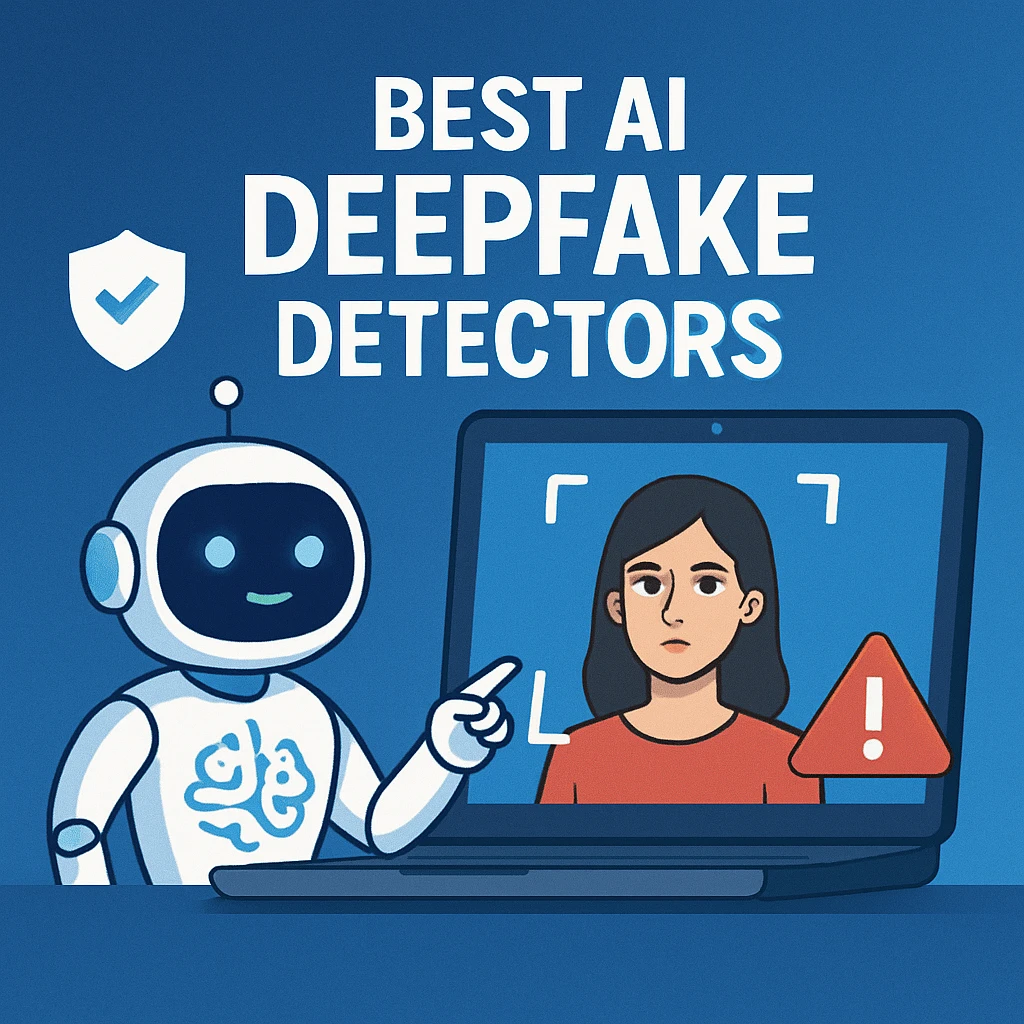
Deepfake Detection
As deepfake technology becomes more advanced and accessible, detecting AI-manipulated content is now a critical challenge across journalism, education, law, and...

Productivity & Calendar
AI productivity and calendar tools have become essential for professionals, entrepreneurs, and students looking to make the most of their time without getting overwhelmed...
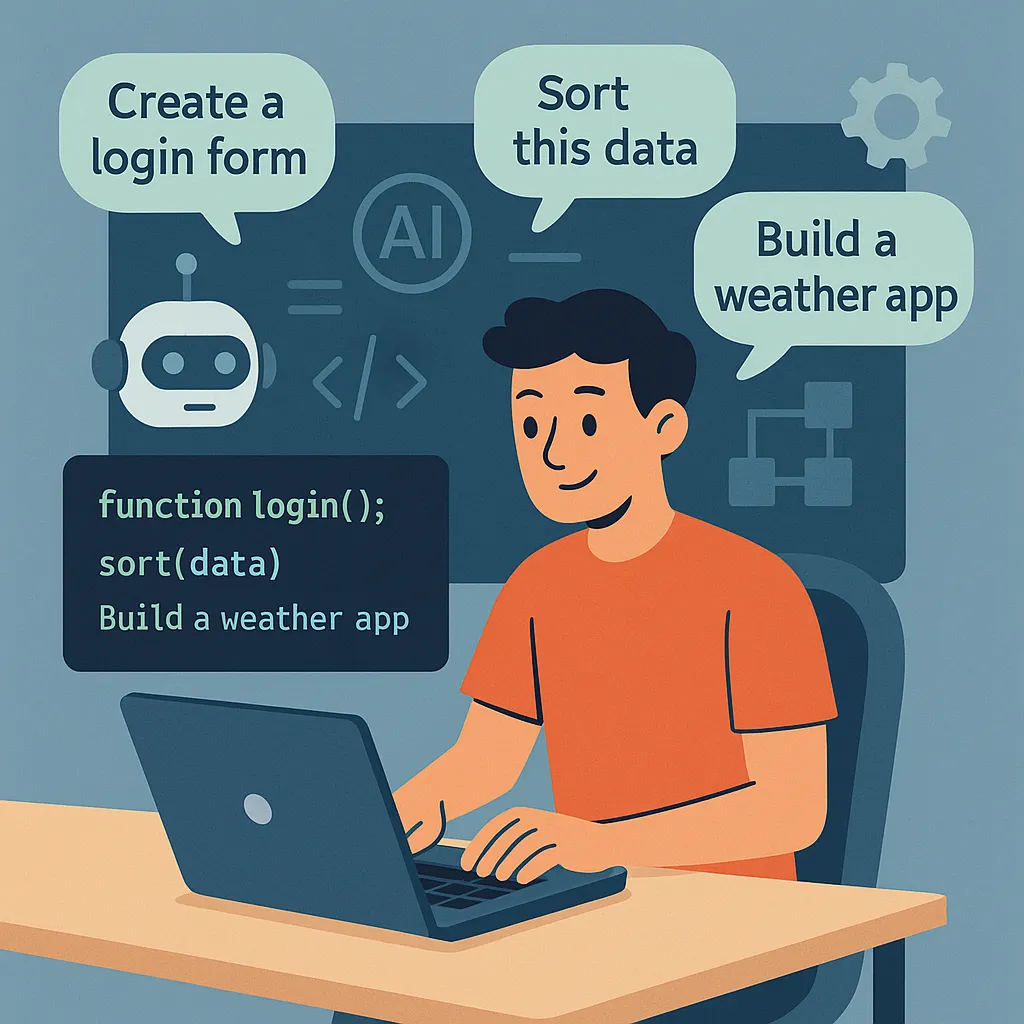
Natural Language To Code
Natural language to code tools are transforming software development by enabling users to build apps, websites, and workflows without needing advanced programming...
Blog
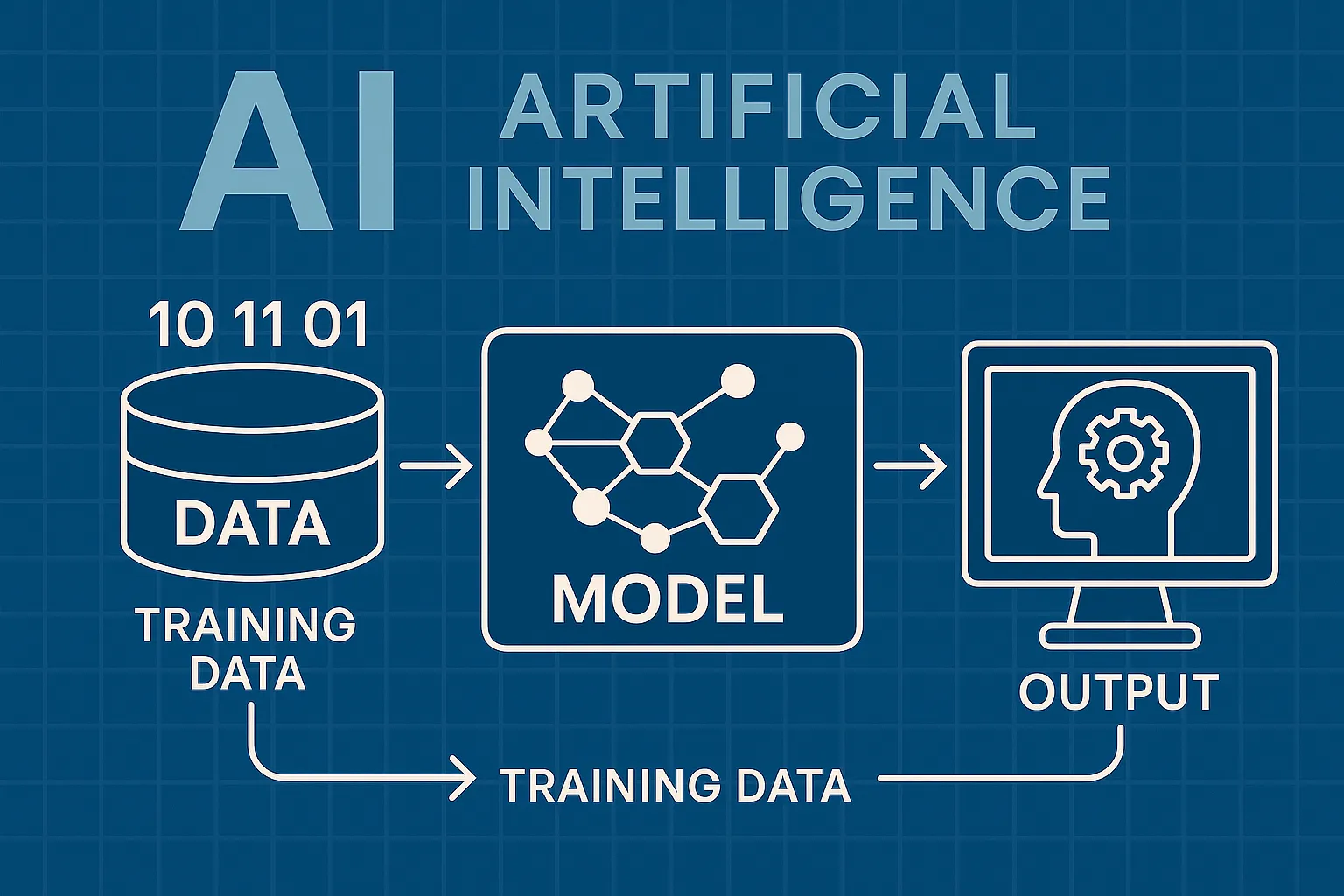
How AI Actually Works
Understand the basics of how AI systems learn, make decisions, and power tools like chatbots, image generators, and virtual assistants.

What Is Vibe Coding?
Discover the rise of vibe coding — an intuitive, aesthetic-first approach to building websites and digital experiences with help from AI tools.
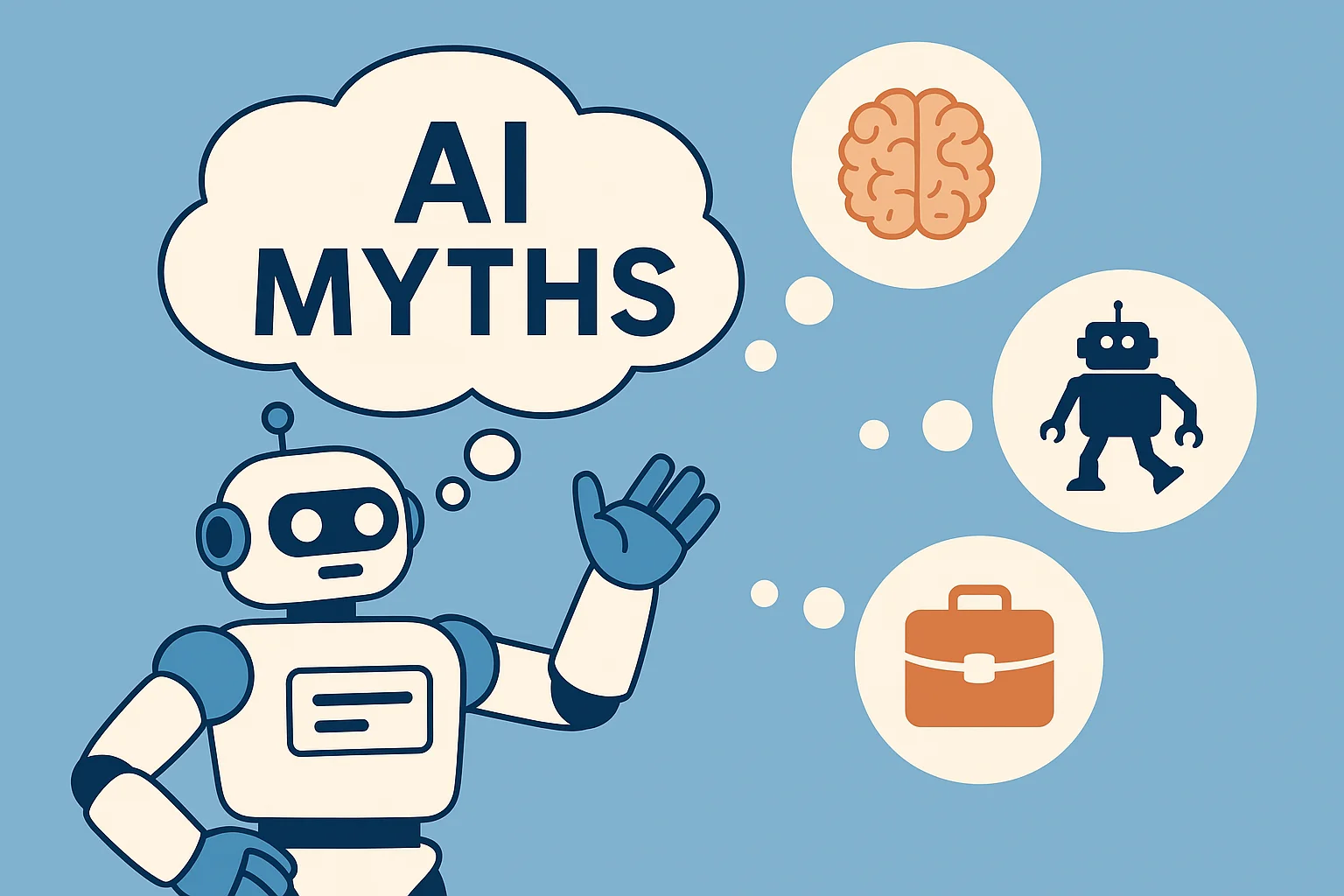
7 Common Myths About AI
Think AI is conscious, infallible, or coming for every job? This post debunks the most widespread misconceptions about artificial intelligence today.

The Future of AI
From generative agents to real-world robotics, discover how AI might reshape society, creativity, and communication in the years ahead.

How AI Is Changing the Job Market
Will AI replace your job — or create new ones? Explore which careers are evolving, vanishing, or emerging in the AI-driven economy.

Common Issues with AI
Hallucinations, bias, privacy risks — learn about the most pressing problems in current AI systems and what causes them.